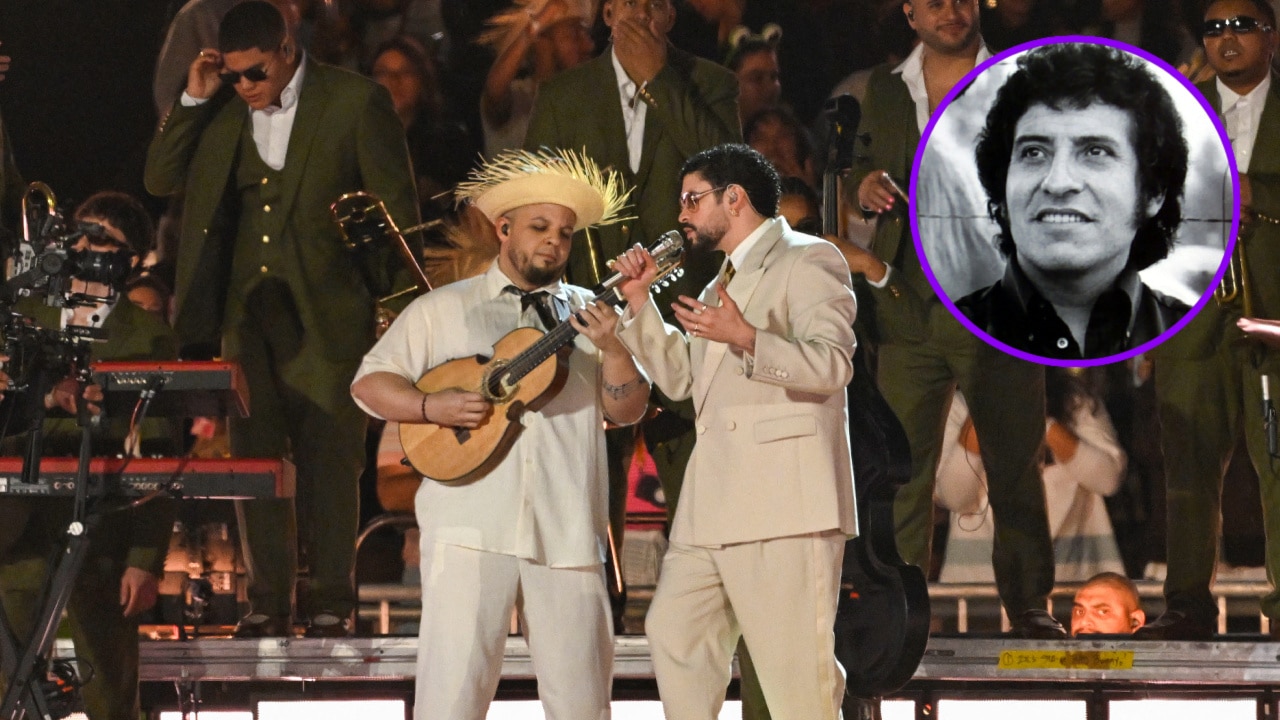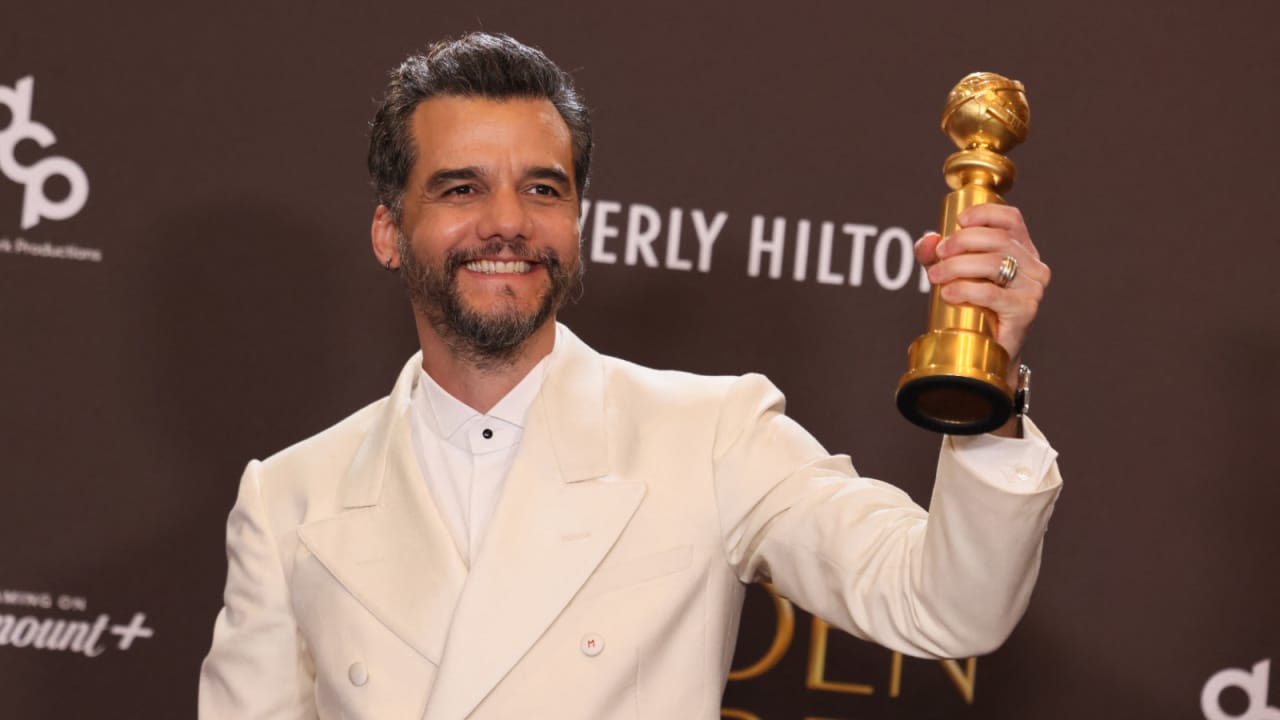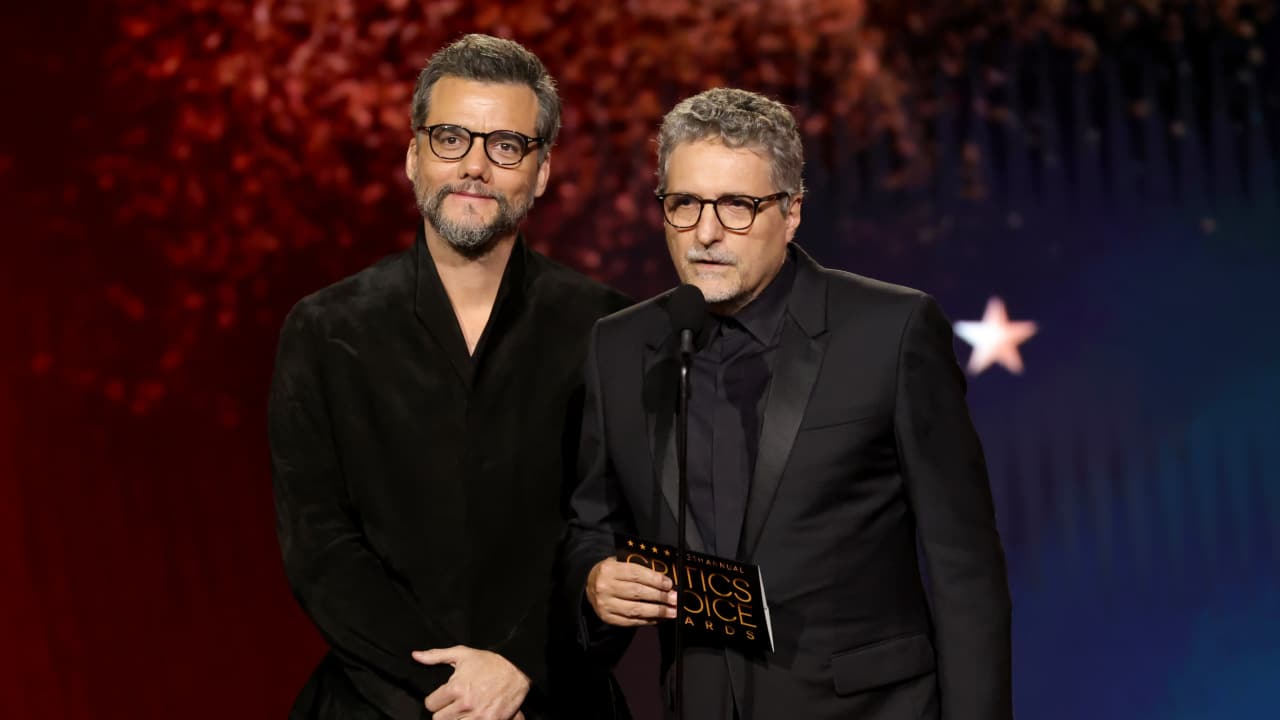This Artist Has Been Breaking Barriers As A Non-Traditional Mariachi
On a recent episode of ABC’s game show To Tell The Truth, three celebrity panelists were tasked to uncover the identity of a real mariachi singer.
Each contender embodied “non-traditional” attributes of mariachi culture either through physical appearance or language barriers, leaving the panelists stumped.
When it came time for the big reveal, with a humble smile 53-year-old Timoteo “El Charro Negro” stood up wowing everyone. Marveled by his talents, Timoteo was asked to perform unveiling his smooth baritone voice.
While not a household name in the U.S., his career spans over 25 years thriving on the catharsis of music.
Originally from Dallas, Texas, Timoteo, born Timothy Pollard, moved to Long Beach, California with his family when he was eight years old. The move to California exposed Pollard to Latin culture, as the only Black family in a Mexican neighborhood.
As a child, he recalled watching Cantinflas because he reminded him of comedian Jerry Lewis, but musically he “got exposed to the legends by chance.”
“I was bombarded by all the 1960s, ’70s, and ’50s ranchera music,” Timoteo recalls to mitú.
The unequivocal passion mariachi artists like Javier Solis and Vicente Fernandez possessed heavily resonated with him.
“[The neighbors] always played nostalgic music, oldies but goodies, and that’s one thing I noticed about Mexicans,” Timoteo says. “They can be in their 20s but because they’ve grown up listening to the oldies it’s still very dear to them. That’s how they party.”
For as long as he can remember, Pollard “was born with the genetic disposition to love music,” knowing that his future would align with the arts.
After hearing Vicente Fernandez sing “Lástima Que Seas Ajena,” an awakening occurred in Pollard. While genres like hip-hop and rap were on the rise, Pollard’s passion for ranchera music grew. It was a moment when he realized that this genre best suited his big voice.
Enamored, Pollard began to pursue a career as a Spanish-language vocalist.

At 28, Timoteo began learning Spanish by listening and singing along to those artists he adored in his youth.
“When I decided that I wanted to be a mariachi, I didn’t think it was fair to exploit the culture and not understand the language,” he says. “If I’m going to sing, I need to be able to communicate with my audience and engage with them. I need to understand what I’m saying because it was about honor and respect.”
Pollard began performing local gigs after picking up the language in a matter of months. He soon attracted the attention of “Big Boy” Radio that adorned him the name Timoteo “El Charro Negro.”
Embellishing his sound to highlight his Black heritage, Pollard included African instruments like congas and bongos in his orchestra. Faintly putting his own spin on a niche genre, Pollard avoided over-saturating the genre’s sound early in his career.
Embraced by his community as a beloved mariachi, “El Charro Negro” still encountered race-related obstacles as a Black man in the genre.
“There are those [in the industry] who are not in the least bit thrilled to this day. They won’t answer my phone calls, my emails, my text messages I’ve sent,” he says. “The public at large hasn’t a problem with it, but a lot of the time it’s those at the helm of decision making who want to keep [the genre] exclusively Mexican.”
“El Charro Negro” persisted, slowly attracting fans worldwide while promoting a message of harmony through his music.
In 2007, 12 years into his career, Pollard received a golden ticket opportunity.

In a by-chance encounter with a stagehand working on Fernandez’s tour, Pollard was offered the chance to perform onstage. The singer was skeptical that the offer was legit. After all, what are the chances?
The next day Pollard went to his day job at the time and said, “a voice in my head, which I believe was God said, ‘wear your blue velvet traje tonight.'”
That evening Pollard went to a sold-out Stockton Area where he met his idol. As he walked on the stage, Pollard recalls Fernandez insisting that he use his personal mic and band to perform “De Que Manera Te Olvido.”
“[Fernandez] said he did not even want to join me,” he recollects about the show. “He just was kind and generous enough to let me sing that song on his stage with his audience.”
The crowd applauded thunderously, which for Pollard was a sign of good things to come.

In 2010, he released his debut album “Me Regalo Contigo.” In perfect Spanish, Pollard sings with great conviction replicating the soft tones of old-school boleros.
Unraveling the rollercoaster of relationships, heart-wrenchingly beautiful ballads like “Me Regalo Contigo” and “Celos” are his most streamed songs. One hidden gem that has caught the listener’s attention is “El Medio Morir.”
As soon as the track begins it is unlike the others. Timoteo delivers a ’90s R&B love ballad in Spanish, singing with gumption as his riffs and belts encapsulate his unique sound and story.
Having appeared on shows like Sabado Gigante, Don Francisco Presenta, and Caso Cerrado in 2011, Timoteo’s career prospered.
Timoteo hasn’t released an album since 2010 but he keeps his passion alive. The singer has continued to perform, even during the Covid pandemic. He has high hopes for future success and original releases, choosing to not slow down from his destined musical journey.
“If God is with me, who can be against me? It may not happen in a quick period of time, but God will make my enemies my footstool,” he said.
“I’ve continued to be successful and do some of the things I want to do; maybe not in a particular way or in particular events, but I live in a very happy and fulfilled existence.”




